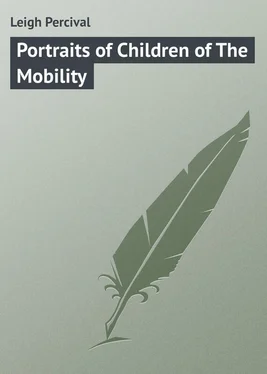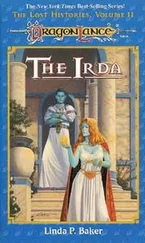Percival Leigh - Portraits of Children of The Mobility
Здесь есть возможность читать онлайн «Percival Leigh - Portraits of Children of The Mobility» — ознакомительный отрывок электронной книги совершенно бесплатно, а после прочтения отрывка купить полную версию. В некоторых случаях можно слушать аудио, скачать через торрент в формате fb2 и присутствует краткое содержание. ISBN: , Жанр: foreign_prose, на английском языке. Описание произведения, (предисловие) а так же отзывы посетителей доступны на портале библиотеки ЛибКат.
- Название:Portraits of Children of The Mobility
- Автор:
- Жанр:
- Год:неизвестен
- ISBN:http://www.gutenberg.org/ebooks/44806
- Рейтинг книги:4 / 5. Голосов: 1
-
Избранное:Добавить в избранное
- Отзывы:
-
Ваша оценка:
- 80
- 1
- 2
- 3
- 4
- 5
Portraits of Children of The Mobility: краткое содержание, описание и аннотация
Предлагаем к чтению аннотацию, описание, краткое содержание или предисловие (зависит от того, что написал сам автор книги «Portraits of Children of The Mobility»). Если вы не нашли необходимую информацию о книге — напишите в комментариях, мы постараемся отыскать её.
Portraits of Children of The Mobility — читать онлайн ознакомительный отрывок
Ниже представлен текст книги, разбитый по страницам. Система сохранения места последней прочитанной страницы, позволяет с удобством читать онлайн бесплатно книгу «Portraits of Children of The Mobility», без необходимости каждый раз заново искать на чём Вы остановились. Поставьте закладку, и сможете в любой момент перейти на страницу, на которой закончили чтение.
Интервал:
Закладка:
Percival Leigh
Portraits of Children of The Mobility
CHILDREN OF THE MOBILITY
OF THE MOBILITY IN GENERAL
The Mobility are a variety of the human race, otherwise designated, in polite society, as "The Lower Orders," "The Inferior Classes," "The Rabble," "The Populace,"
"The Vulgar," or "The Common People." Among political philosophers, and promulgators of Useful Knowledge, they are known as " The People," "The Many," "The Masses," "The Millions." By persons of less refinement, they are termed "The Riff-raff," and "The Tag-rag-and-bobtail." Figuratively, they are also denominated "The Many-headed;" although in England, in common with the other members of the body politic, they have but one head. May it be long before that one is replaced by another! In some foreign countries, as in America, they change their head very often; and in a neighbouring kingdom (where they are called "The Canaille"), their head is, strange to say, their target.
We write solely for the benefit of the superior classes, that is to say, of the Nobility, Gentry, Clergy, and so many of the Public in general as will condescend to patronise our work. These individuals, if we may so call them, inhabiting a different sphere from that of the Mobility, are not (with the exception, of course, of the Magistracy and the Clergy,) in the habit of meeting them; some account, therefore, of this little-known class, introductory to an exhibition of their offspring, may be reasonably expected of us. Our gentle readers, we apprehend, have but little regarded the Mobility in passing through our public thoroughfares. When employed in taking the air, they move in a loftier line than that of the pavement, and, occupied with the momentous cares of the Senate, the Opera, and the Ball, are too deeply absorbed in meditation to cast their eyes below.
The Mobility are the antipodes to the Nobility: the one race of men being at the top of the world, the other at the bottom of it. The word Mobility is said to be derived from the Latin term Mobilis , fickle, or moveable; as Nobility is from Nobilis , noble. But what can be more fickle than fashion, what more vulgar than constancy? The heads of society, too, are quite as moveable as its tails. The Nobility are continually in motion; moving in good company, moving in Parliament, moving about the world. If we are to take up the Mobility as vagrants, we must set down the Nobility as tourists; 1 1 There are some real travellers among the Mobility, though most of their journeymen lead a sedentary life.
if the former are moved by Punch and Shakspere, the latter are equally so by Rubini and Bellini. There are some who think that Mobility comes from Mobble , to dress inelegantly; a surmise more ingenious than correct. The humbler classes were perhaps originally named, as in former times they were governed, by arbitrary power. As to an opinion that the opposite term, Nobility, is derived from Nob , a word which in the vocabulary of certain persons signifies head, we only mention it to show the horrid ideas of etymology which some minds are capable of forming.
The property most common to all the Mobility is poverty; that is to say, no property at all. It is not usual to describe them as a respectable body, but they are an influential one, and their influence has, of late years, been much augmented. Perhaps, also, as they constitute the operative part of the community, and its physical force, they may be regarded as being, in a national point of view, of some little importance: but all who have any pretensions to delicacy look upon them as disagreable persons. Those of them who are, so to speak, at large, inhabit the huts and hovels of our villages, and the fearful dens in the less known and more unpleasant regions of our towns and cities. Here they are chiefly to be found, according to medical men and other adventurous travellers, in places analogous to those in which our wine is kept, and where our menials repose, the garrets and cellars. Many thousands of them are contained in ships and barracks, and also in penitentiaries, prisons, workhouses, and other places of punishment for indigence and dishonesty.
The difference between the words Mobility and Nobility is merely a letter. So, between individuals belonging to the two classes, a single letter may constitute a distinction. There are some names peculiar to the Nobility, and some to the Mobility. Jenkins, for example, is one of the names of the Mobility, but it assumes an aristocratic character by being spelt Jenkyns. The addition of a letter, or the addition of one and the alteration of another, is sometimes necessary to effect this change. Thus, Brown and Smith are ennobled by being converted into Browns and Smythe. Persons who have acquired their property by dealing in cheese and so forth, are, some of them, aware of this fact, and hence it is that the butterfly state of a sugar-baker is often denoted by such a transformation, and that Gubbynses and Chubbes enrich the aristocracy of Tooting.
Castlemaine, Mortimer, Percy, Howard, Stanley, Vere and Conyers, are well known as being among the names of the Nobility. In like manner, Tupp, Snooks, Pouch, Wiggins, Blogg, Scroggins, and Hogg, are names characteristic of the Mobility. Dobson, Jobson, and Timson, are appellations of the same order. How shocking it would be to impose any one of them on the hero of a fashionable novel! Johnson may now , perhaps, be tolerated; but we think John stone decidedly preferable.
The names which the Mobility derive from their sponsors may be Christian names; but some of them are, nevertheless, very shocking. No refined grammarian could venture to call them proper names; and to dream of disgracing a scutcheon by them would horrify any one but a savage. The mind shrinks, so to speak, at the bare idea of such an association of names as Ebenezer Arlington, Jonathan Tollemache, Moses Montague, Jacob Manners, or Timothy Craven. An attempt to emulate the higher ranks in the choice of Christian names is sometimes made by the Mobility, but their selection is chiefly confined to the theatrical or romantic species; as Oscar Pugsley, Wilhelmina Briggs, Orlando Bung, and the like. The Mobility, moreover, have seldom more than two names; though some of them, under peculiar circumstances, assume several, pro tempore , with the intervention of an alias . They very generally, too, neglect a practice universally adopted in the exclusive circles, of christening a child by a surname. It is to be wished that they would adopt this custom, for such combinations as Brown Green, Tubb Waters, White Smith, or Bull Bates, would certainly be highly amusing.
The Mobility are also in the habit of using abbreviations in addressing each other, as Jim, Bill, Dick, &c.; an eccentricity which, we are sorry to say, has proved contagious.
It is frequently said of the Mobility that they are houseless and homeless, and so, we believe, many of them are. But all of them are houseless, as contradistinguished from proper characters, and particularly from the Nobility, each of whom can boast of belonging to a house, although no house should belong to him.
Whereas the Nobility, without exception, have coats of arms, the Mobility, with some few exceptions, have none; and the arms of their coats are often out at elbows.
The costume of the Mobility, though not elegant, is in general picturesque; but for this it is indebted, like a ruin, more to the hand of Time than to that of the builder. And, as in the case with ancient edifices, it is diversified by various repairs of a later date, which, while they detract a little from its uniformity, considerably augment its effect. When, too, it is most remote from graceful, it is usually, for an obvious reason, airy.
Читать дальшеИнтервал:
Закладка:
Похожие книги на «Portraits of Children of The Mobility»
Представляем Вашему вниманию похожие книги на «Portraits of Children of The Mobility» списком для выбора. Мы отобрали схожую по названию и смыслу литературу в надежде предоставить читателям больше вариантов отыскать новые, интересные, ещё непрочитанные произведения.
Обсуждение, отзывы о книге «Portraits of Children of The Mobility» и просто собственные мнения читателей. Оставьте ваши комментарии, напишите, что Вы думаете о произведении, его смысле или главных героях. Укажите что конкретно понравилось, а что нет, и почему Вы так считаете.












